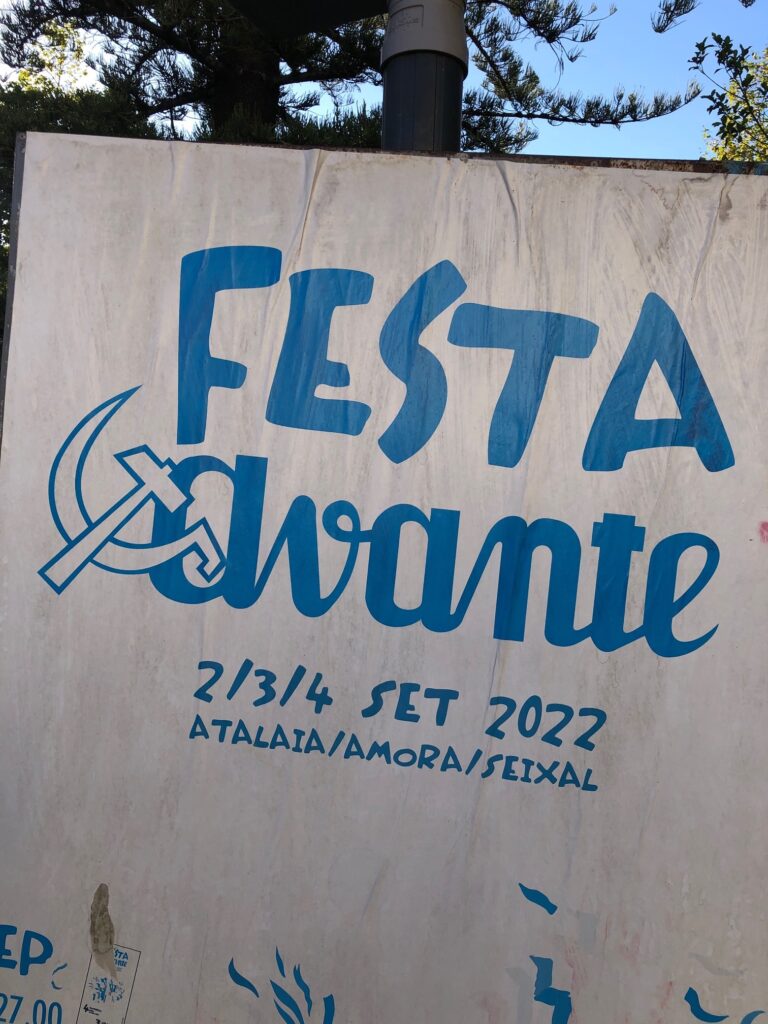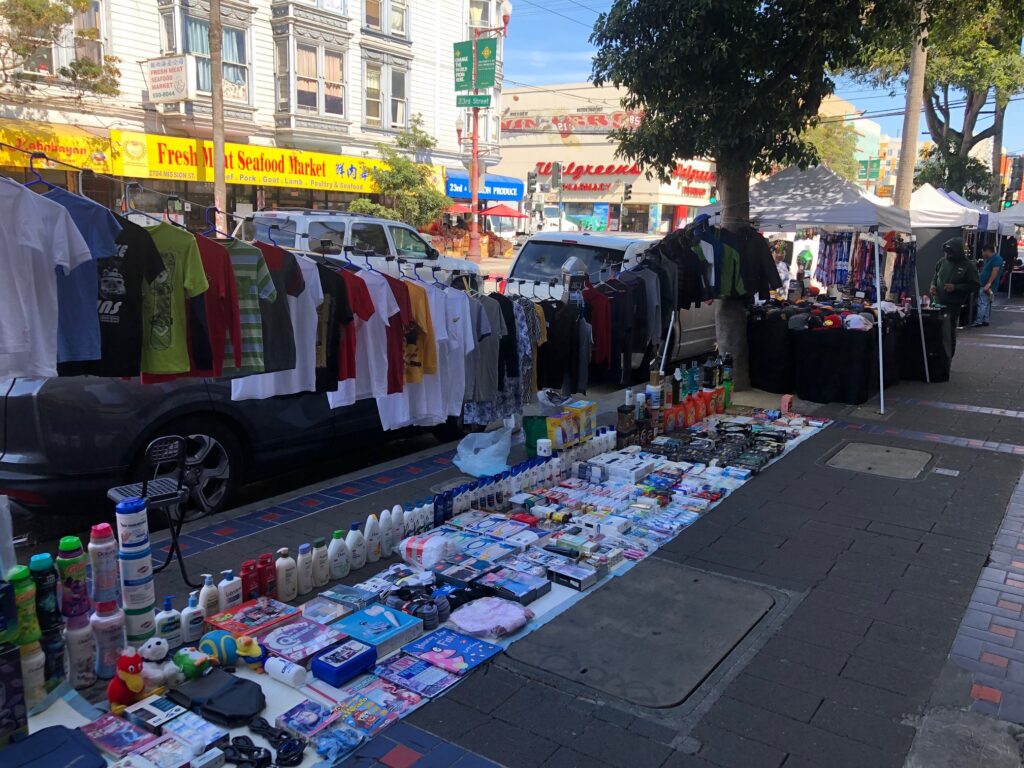I was out of town for a couple of weeks. A lot happened. Let me join you in catching up.
But first, some things I learned on my first trip to Europe.
Portugal is lovely. Like many European cities, Lisbon eminently walkable: Narrow streets with cobblestones, as hilly as SF, winding alleys full of outdoor cafes (and in Portugal, every café serves beer and wine), amazing views, incredibly friendly people. (We had a connection home through Paris, where the people were a lot less friendly.)
But people still drive cars in Lisbon (and Porto, and Sintra, and Nazare), and they share those walkable streets—and the drivers don’t seem to get the idea that “walkable” is a value. At times the cars, particularly Ubers, tear down the tight-packed alleys, which have very narrow (if any) sidewalks, and the pedestrians scatter for dear life.
There is no Vision Zero in Lisbon. The only reason pedestrian fatalities are relatively low is that the streets are so narrow and twisty that it’s hard to build up much speed.
Tipping isn’t a big thing in Europe, in part because the people who work in the service industry are already paid a decent wage. I still want to tip the bartender or server, but I discovered that it’s best to do that in cash; several folks told me that if you add a tip to the credit-card bill, management just keeps it.
The European schedule is perfect for me: Nothing starts too early, breakfast is a light snack, 2pm is a fine time for lunch, and 8pm is a normal time for dinner. In between, a Super Bock or a glass of wine with a snack at 4pm works fine. (It’s hard to get Bourbon in Portugal, and I didn’t once see anyone serve or sell vodka, but every bar has gin, scotch, and Irish whiskey. The wine, of course, is amazing.)
Portugal seems to care about the environment … Public transit is cheap, easy, and efficient. The buses we rode around were new, clean, and ran on natural gas instead of diesel. In the hotel rooms, you have to put your key card into a slot that turns the power own; when you leave, the lights go out. (Brilliant idea.)
And yet: Everyone drinks water out of plastic bottles. When you go into a restaurant and ask for water, it comes in plastic. The airport has nowhere easy to fill a reusable water bottle. When I asked a tour guide at a winery where I could fill my bottle, he suggested “the toilet,” and while I think he meant the tap in the bathroom, this seems to be the general attitude toward water in this part of the world.
Which is crazy: I drank tap water every day. I researched it; Portugese tap water is perfectly safe, regulated, up to (high) EU standards. I can’t believe the water in plastic bottles is any better.
There are still Communists in Portugal, and they have a long history of helping bring down the fascist regime of Antonio Salazar. They don’t have much policy influence at the national level—when Portugal joined the EU, it was forced, like all the other countries, to accept neo-liberal economic policies—but you see the posters all around, celebrating the legacy. If nothing else, it made me smile.

Back home: I understand why Sup. Hillary Ronen is leading a crackdown on what my kids call “outdoor Walgreens,” the open-air markets at the 24st Street BART station where some vendors sell what is clearly stolen merchandise for so little that the legitimate brick-and-mortar stores in the area can’t compete. I agree that the best solution is not to arrest people but to require permits for street vendors and some sort of evidence that they acquired legally the goods they are selling.
I also understand the frustration of the vendors, who are caught up in the bureaucracy of the city’s Public Works Department and can’t get permits that don’t even exist at this point. (Someone from DPW ought to go out to the area with a set of forms and sign people up on the spot. How hard is that?)
The fence at the BART station clearly isn’t working. MissionLocal tracked the vendors all day last week, and discovered that the minute the cops and DPW leave, they call come back. I stopped by today and the entire sidewalk was pretty much blocked off.

I am seeing much outrage on social media: How dare these crooks threaten legitimate businesses? Call the cops! Lock them up!
I wish that same level of outrage happened with Uber, Lyft, and Airbnb broke the law, destroyed longtime legitimate businesses mostly owned by immigrants, devastated the city’s housing stock, and (unlike the street vendors) turned venture capitalists into billionaires—all with the full support of then-Mayor Ed Lee and current Mayor London Breed, along with then-Sup. and now City Attorney David Chiu. (Ronen was working for Sup. David Campos, who tried valiantly to control Airbnb, and was foiled.)
Imagine what would happen if someone created, say, “sfstreetvendors.com” (the URL is available) and set up an app where customers could scan and buy available (maybe stolen) goods, and have them delivered to their homes by some sort of robot or drone. Would the Breed Administration support this “local start-up” by ignoring city laws and encouraging “disruption” and “innovation?”
Would it matter that Uber, Lyft, and Airbnb were all run and funded by rich white people, and that the vendors are mostly poor Latino people, many of them immigrants?
I’m not for selling stolen goods, but still: The double standard I’m seeing on social media is so obvious it makes me sick.
I’m glad the SF Standard, unlike the Chron and the local TV stations that attacked former DA Chesa Boudin, is willing to apply some of the same standards to the new district attorney. According to MissionLocal, her first few days on the job were a political disaster with the Mayor’s Office pulling the strings. She is facing a looming legal nightmare and can’t put more people in jail, even if she wants to. Now it turns out that she failed to disclose evidence to the defense in a homicide case.
I have yet to see the news outlets that most strongly pushed the recall pay much attention to this. Not one Heather Knight story. Nothing from Dion Lim at Channel 7 news. Now that Chesa Boudin is gone, all the problems seem to have magically gone away.
But that’s not the case on the streets—and sooner or later, the public is going to realize it.
The supes, the Planning Commission, and most of the rest of City Hall is taking a summer break until September. But lots still going on in local politics, and we will be keeping up.





